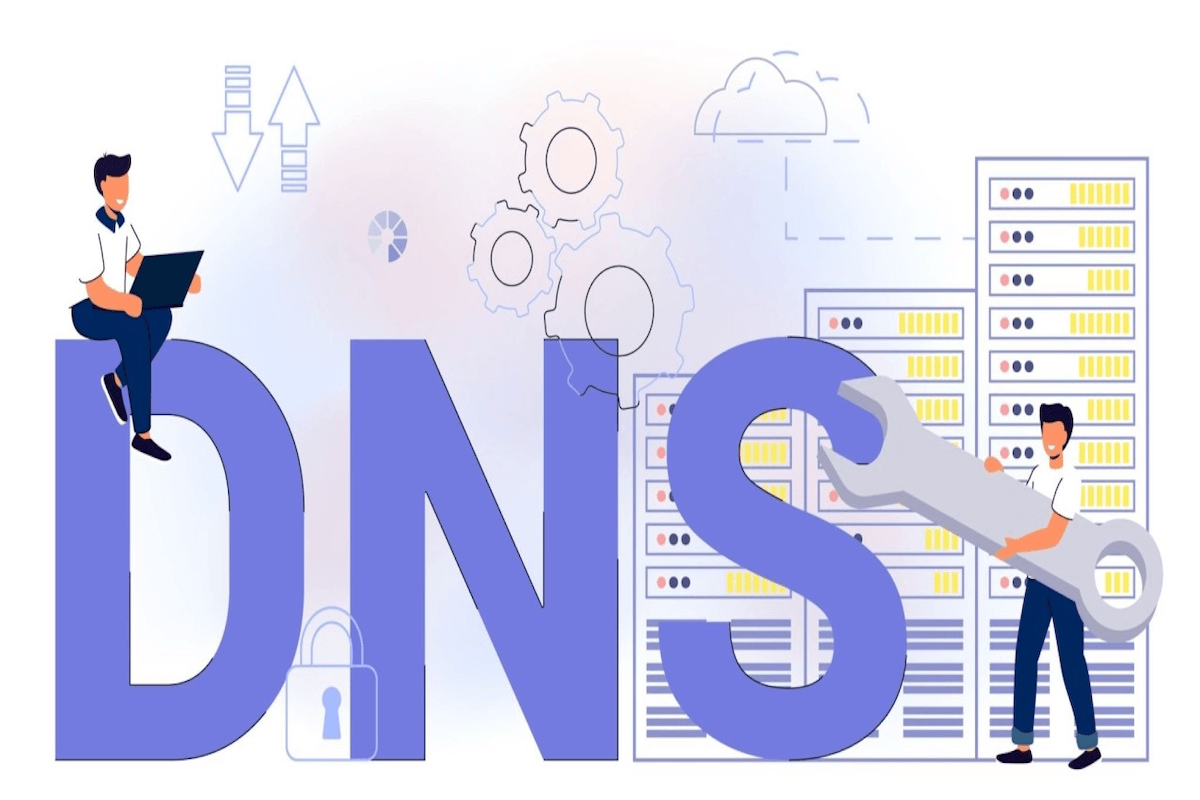The essence and significance of DNS servers.

What is a DNS server? What is a DNS server used for? A DNS server is a device or application that converts domain names into IP addresses. What is a DNS server address? Each DNS server has its own address, which is used to connect to the server and process domain name resolution requests.
DNS servers convert domain names into IP addresses that are used for communication between computers on a network. When a user enters a domain name in a browser's address bar, the DNS server translates it into an IP address, which is then used to establish a connection to the server hosting the website.
How a DNS Server Works
The principle of operation is that it receives a request from a client containing a domain name and then returns the IP address associated with that name. This process is carried out using a database that contains information about all available domain names and their corresponding IP addresses. When a DNS server receives a request to resolve a domain name, it searches for this information in its database and returns the corresponding IP address.
DNS Servers in Ukraine
The list of DNS servers in Ukraine includes:
- Public DNS servers, which anyone can use;
- Private servers, intended only for certain organizations or users.
They provide fast access to websites located within the country, which is particularly important for users who frequently visit Ukrainian sites and need quick access.
Types of DNS Servers
- Root DNS servers;
- Local DNS servers;
- Domain DNS servers.
Root DNS Servers
Root DNS servers are fundamental components of the internet infrastructure that play a critical role in handling domain name resolution requests. They contain information about top-level domains like .com, .org, .net, etc. There are 13 root DNS servers worldwide, each with a unique IP address, managed by different organizations.
Local DNS Servers
Local DNS servers are used to speed up domain name resolution within organizations and homes. They store information about frequently visited websites and provide fast access to them. These servers also reduce the load on public DNS servers, improving overall network performance.
Domain DNS Servers
A set of computers that store information about a domain and its subdomains, as well as their relationships, is called domain DNS servers. They are responsible for translating domain names into corresponding IP addresses needed to connect to websites or other online resources.
Each type of server performs different functions, but their main task is to ensure proper name resolution.
DNS Zones
A DNS zone is a fragment of a domain name containing data about specific IP addresses associated with that domain. Servers store this information for all DNS zones and ensure the availability of websites within these zones. Multiple DNS servers are designated for each zone to guarantee site accessibility.
Importance of DNS Servers
DNS servers are crucial for both users and websites as they ensure stability and accessibility of the internet. They also play an important role in network security by protecting users from abuse and cyberattacks. Additionally, DNS servers enable fast and efficient access to websites by speeding up the domain name resolution process.
DNS servers are an integral part of the modern internet, providing proper resolution of domain names to IP addresses. They are key to ensuring fast and reliable access to web resources. Without them, we wouldn’t be able to use domain names to access websites or send and receive emails.
DNS servers also handle updating domain name information and their relationships, so users can access accurate and up-to-date resources. It is important to note that they are not universal—each domain has its own set of DNS servers responsible for that domain and its subdomains. The importance of DNS servers for the modern internet cannot be overstated. Fast and reliable access to DNS servers is essential for efficient website performance and meeting user needs. Therefore, the reliability and security of DNS servers must be ensured to allow the modern internet to continue evolving and improving.